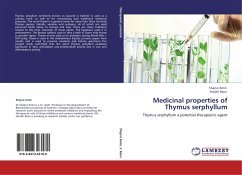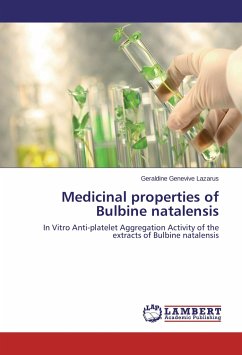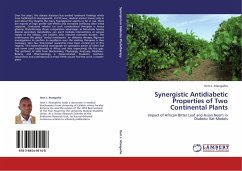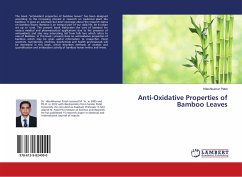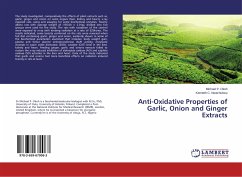Thymus serpyllum commonly known as Jawand in Kashmir is used as a culinary herb, as well as for aromatizing and traditional medicinal purposes. The word thyme is a general name for more than three hundred Thymus species, hybrids, varieties and ecotypes, all of which are small perennial herbs native to Europe and Asia. There are many traditions related to the tonic character of these plants. The Egyptians used it in embalmment. The Roman soldiers used to take a bath in water with thyme to provide vigour. Thyme oil was used as an antiseptic during World War I. Still today, thyme is used in the embalmment liquids, protects paper from mould, and is used to preserve anatomy and botany specimens. The present study confirmed that the plant Thymus serpyllum possesses significant in vitro antioxidant and antimicrobial activity and in vivo anti inflammatory activity.
Bitte wählen Sie Ihr Anliegen aus.
Rechnungen
Retourenschein anfordern
Bestellstatus
Storno

